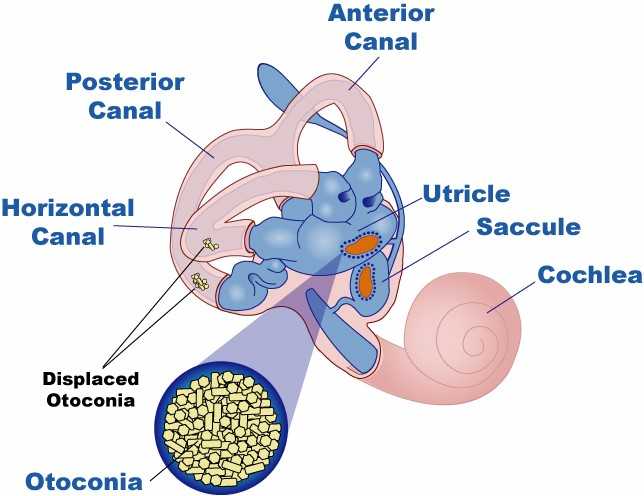[su_divider top=”no” style=”double” divider_color=”#952524″ link_color=”#952524″ size=”2″ margin=”10″]
What is Benign Paroxysmal Positional Vertigo (BPPV)? What are causes? What are the predisposing factors? What are sign and symptoms? How can BBPV be diagnosed? What is the treatment? How can homoeopathy help you? All of this answered, in this post and of course our doctors always there to help you. Just fill in your details in the form down below and we will answer all your questions for FREE!
[su_divider top=”no” style=”double” divider_color=”#952524″ link_color=”#952524″ size=”2″ margin=”10″]
[sc name=”query”]

What is Benign paroxysmal positional vertigo (BPPV)?
Benign paroxysmal positional vertigo (BPPV) is a disorder of the internal ear, which is the most common cause of vertigo. BPPV causes brief episodes of mild to severe dizziness.
Each part of the name describes the condition very clearly-
• Benign – it is not life-threatening/very serious
• Paroxysmal – it comes in sudden, short spells, lasts a short time, and comes and goes.
• Positional – it is usually triggered by the movement of your head’s position.
• Vertigo – a false sense of rotational movement or spinning
What are the causes of BPPV?
• BPPV occurs when calcium carbonate crystals (otoconia) that are normally embedded in gel in the utricle become dislodged and move to other areas, including the canals in your ears i.e., 3 fluid-filled semicircular canals (that sense your head’s rotation).
• When enough of these crystals accumulate in one of the canals, they interfere with the normal fluid movement, causing the inner ear to send false signals to the brain.
• These crystals can clump together, in the semi-circular canals. Because the clump is heavy, it will sink to the lowest part of your inner ear.
• When you turn or change position, the clump of crystals will cause the fluid in your inner ear to splash/spill around, after you’ve stopped moving.
• When the fluid in the canals moves, nerve endings in the canal are stimulated and send a message to the brain that the head is moving, even though it isn’t moving. This creates the sense that you’re moving even though you are still.
What are the predisposing factors of BPPV?
Certain conditions can predispose to BPPV like:
• head injury
• bed rest – prolonged
• old age
• Ear infection
• Ear surgery
In most patients of BPPV is Primary or Idiopathic BPPV, where no known cause is apparent.
Also Read: Meniere Disease
What are the symptoms of BPPV?
Symptoms that BPPV patients may complain of are-
• Dizziness- this can happen any time you move or change the position of your head.
• Spinning
• Unsteadiness or Imbalance
• Nausea or vomiting
• Lightheadedness
Episodes of spinning usually last for about one minute. Some people can also feel difficulty in balancing, they are standing or walking.
How well do the patients do?
BPPV is not dangerous or life-threatening (although vertigo can be severe). Many cases will lessen in severity spontaneously, and physical therapy can be effective in resolving the complaints in many patients.
How can BPPV be diagnosed?
1. Physical examination
2. Medical tests, including:
Electronystagmography (ENG) or videonystagmography (VNG) or MRI
What are the common treatments available for BBPV?
1. Antivertigo medications can be given for symptomatic/temporary relief.
2. Canalith Repositioning Maneuvers- The maneuvers are helpful as they guide the crystals back to the chamber, where they are supposed to be via a very specific series of head movements. One of the most common maneuvers that are used for the most common location and type of BPPV is called the Epley maneuver.
3. Surgery- In this procedure, plugging of a part of the inner ear is done to prevent the small calcium crystals from moving in your ear canal. Surgery also carries some chances of complications, such as loss of hearing.
Can homeopathy help in cases of BPPV?
Yes, there are homeopathic remedies that can be successfully given in the case of BPPV. Some of the commonly indicated remedies are-
• Belladonna
• Gelsemium
• Conium Maculatum
• Cocculus Indicus
• Phosphorus.
Also Read: Tinnitus
For more information, you can visit HealthLine and WebMD.
Benign Paroxysmal Positional Vertigo (BPPV)
[su_divider divider_color=”#952524″ link_color=”#952524″ size=”2″ margin=”10″]
[sc name=”know-your-doctor”]
[sc name=”more-links-diseases”]

